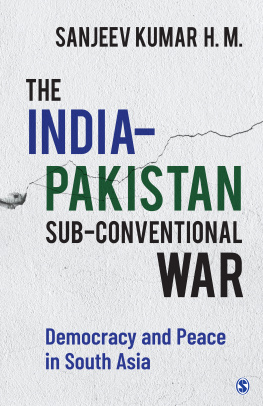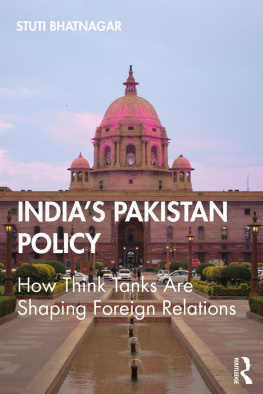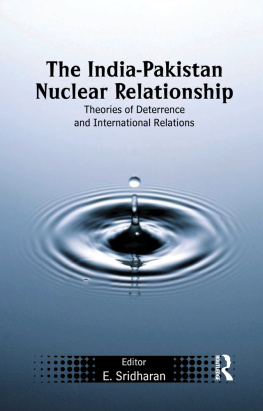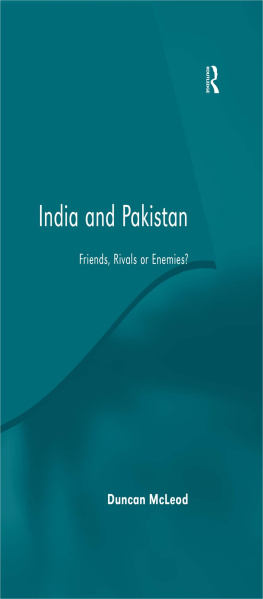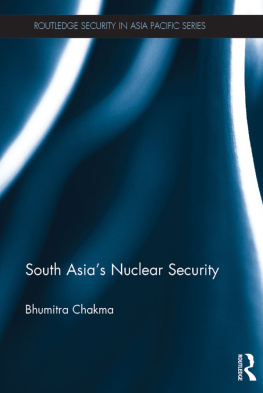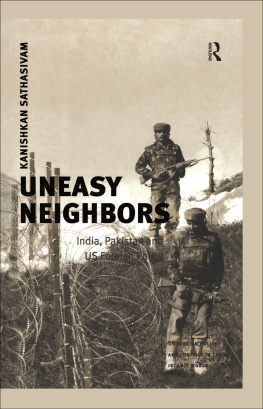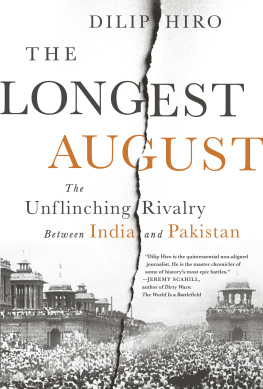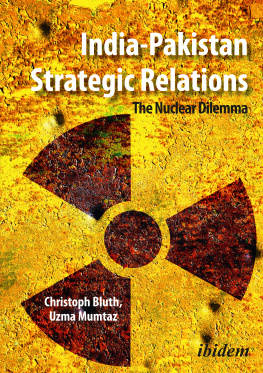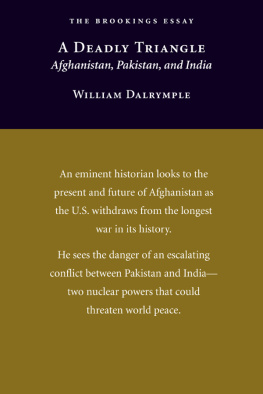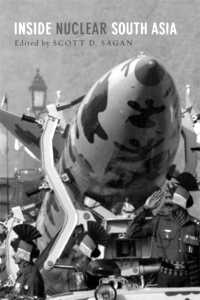
Security Community in South Asia
The security relationship between India and Pakistan is generally viewed through a neo-realist approach of international relations. Treading on a different path, this book explains the rivalry of these countries by looking at the socio-cultural norms found at two levels, elites versus popular. Furthermore, it also conceptualises a hypothetical IndiaPakistan security community that could result in peace in the region.
The book describes how the rivalry between India and Pakistan is mostly centred on the elites of the two countries. It highlights the presence of a unique normative structure through social practices found at the popular level, and looks at how the common people of both India and Pakistan share many socio-cultural norms. Employing the theoretical framework of the social constructivist approach of international relations, as well as the methodology of critical discourse analysis, the book discusses how an effort can be made to develop the concept of a bottom-up security community, from the popular to the elite level, and the impact this would potentially have for India and Pakistan.
An interesting and valuable approach for analysing these issues of security through the socio-cultural lens, this book is of interest to academics and scholars of South Asian Politics, security studies and international relations.
Muhammad Shoaib Pervez has worked as an Assistant Professor of International Relations at the University of the Punjab Lahore and presently he is member of the faculty at Lahore School of Economics, Pakistan. His research interests include theories of international relations, particularly social constructivism, strategic culture and security community.
Routledge Studies in South Asian Politics
1 Nepal and the Geo-Strategic Rivalry between China and India
Sanjay Upadhya
2 Security Community in South Asia
IndiaPakistan
Muhammad Shoaib Pervez
3 Refugees and Borders in South Asia
The Great Exodus of 1971
Antara Datta
Security Community in South Asia
IndiaPakistan
Muhammad Shoaib Pervez
First published 2013
by Routledge
2 Park Square, Milton Park, Abingdon, Oxon OX14 4RN
Simultaneously published in the USA and Canada
by Routledge
711 Third Avenue, New York, NY 10017
Routledge is an imprint of the Taylor & Francis Group, an informa business
2013 Muhammad Shoaib Pervez
The right of Muhammad Shoaib Pervez to be identified as author of this work has been asserted by him in accordance with sections 77 and 78 of the Copyright, Designs and Patents Act 1988.
All rights reserved. No part of this book may be reprinted or reproduced or utilised in any form or by any electronic, mechanical, or other means, now known or hereafter invented, including photocopying and recording, or in any information storage or retrieval system, without permission in writing from the publishers.
Trademark notice: Product or corporate names may be trademarks or registered trademarks, and are used only for identification and explanation without intent to infringe.
British Library Cataloguing in Publication Data
A catalogue record for this book is available from the British Library
Library of Congress Cataloging in Publication Data
Pervez, Muhammad Shoaib.
Security community in South Asia: India-Pakistan / Muhammad Shoaib
Pervez.
p. cm. (Routledge studies in South Asian politics; 2)
Includes bibliographical references and index.
1. Security, International South Asia. 2. South Asia Foreign relations.
3. India Foreign relations Pakistan. 4. Pakistan Foreign relations
India. 5. South Asia Politics and government. I. Title.
JZ6009.S64P47 2012
355.033054dc23 2012002853
ISBN: 978-0-415-53150-4 (hbk)
ISBN: 978-0-203-10626-6 (ebk)
Typeset in Times New Roman
by HWA Text and Data Management, London
To the dream of a prosperous future for the people of IndiaPakistan
Each society has its regime of truth, its general politics of truth: that is, the type of discourse which it accepts and makes function as true.
(Michel Foucault, Two lectures)
Contents
This book was earlier part of a PhD dissertation which I completed at Leiden University, Netherlands in December 2010 and it is essential to traverse the journey so far undertaken. I cannot call this book the end product of my efforts without acknowledging the help, love and guidance of all the people whose shadows loom much larger than my humble efforts. First of all, all praise to Allah for giving me the courage and strength to shoulder this enormous task. I am very thankful to the Higher Education Commission of Pakistan for providing me a four-year financial grant for my PhD. My promoter, Rob de Wijk gave me the full freedom to explore the depths of the subject of International Relations as well as the topic of my own dissertation. I am also very thankful to Willigen van Niels who agreed to be my co-promoter in the last year. Niels also explained to me the value behind the publishing of this thesis through Routledge. I am also thankful to Tanja Aalberts, Prof Joop van Holsteijn, the chair of the Institute of Political Science, as well as my room-mates Kavita, Veerle and Floris. I have developed a long-time association with the yellow colour building of the Faculty of Social Sciences at Pieter de La Courte gebouw where I was studying (20072010). I was in this building all year round almost seven days a week. The quiet and beautiful city of Leiden is a kind of a dream city for research. At Routledge, Dorothea and Jillian were very kind in helping me with the handling of the editing process in which I was a complete novice.
On a more personal note, I want to thank my parents. The strong values of honesty and truthfulness inculcated by my parents, Wajeeh Uddin Pervez and Shahida Pervez, in my upbringing helped me a lot in my first sojourn abroad. I have this heartening feeling that the prayers of my mother were always there with me while I was abroad for four years. I am also grateful to the prayers of my father-in-law, Pirzada Riffat Nawaz, and mother-in-law, Bushra Riffat. My father-in-law deserves special mention for his insistence to explore opportunities of higher education abroad, and his lifelong desire to bring peace and prosperity in South Asia was the starting point of my serious contemplation towards research. The most important influence during all my four years of research and stay in the Netherlands was that of my wife, Sadia. She single-handedly raised our two sons Muneeb and Moiz during my long working hours and often seven-days-a-week schedule at the university. Moreover, the fact that we managed to live as a family on a scholarship originally meant for a single person for four years is a miracle which only she can manage. The completion of this book owes a large part to her encouragement, compassion and love.
| BJP | Bharatiya Janata Party |
| BJS | Bharatiya Jana Sangh |
| CENTO | Central Treaty Organisation |
| CBFC | Central Board of Film Certification |
| EU | European Union |
| IR | International Relations |
|


